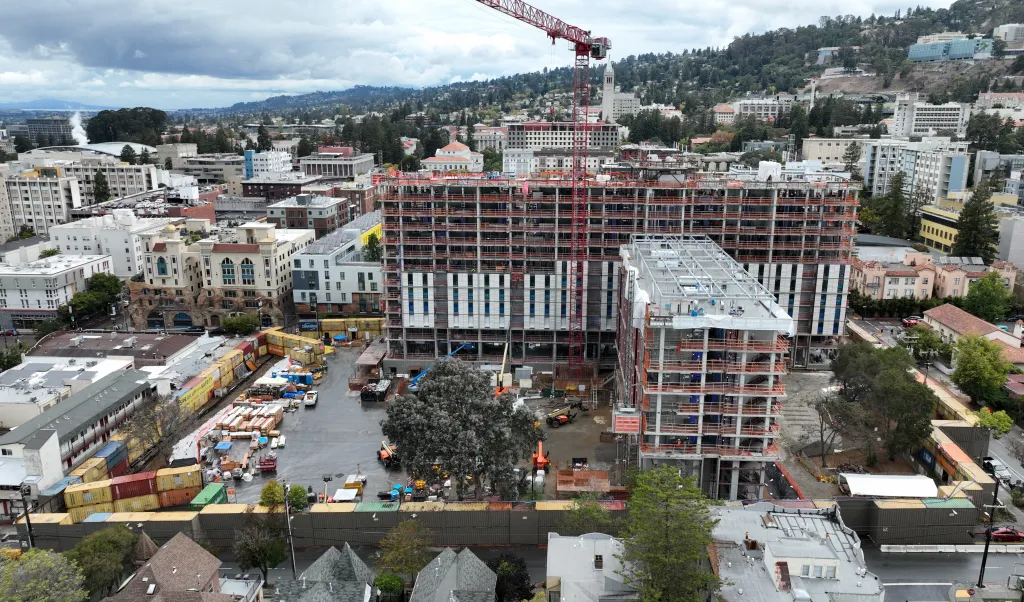Copyright The Mercury News

One election just ended, but another potentially major voter battle has already started in California. No, not the governor’s race, but a proposed ballot measure that could make significant changes to one of the state’s landmark environmental laws — the California Environmental Quality Act. Late last month, the California Chamber of Commerce announced it had filed paperwork to place a measure on next November’s statewide ballot that would overhaul the law, commonly known as CEQA, with the goal of cutting red tape, lowering housing and energy costs, and making construction easier. If the Chamber and its supporters collect 546,000 valid signatures by next spring, as expected, the “Building an Affordable California Act” would impose a 365-day limit on environmental reviews for a wide range of projects, including new reservoirs, desalination plants, forest thinning to reduce wildfire risk, apartments, housing subdivisions, senior housing, student housing, roads, bridges, public transit, hospitals, medical centers, broadband internet, solar farms, wind farms and battery storage facilities. It would also require courts to rule within 270 days when CEQA lawsuits are filed challenging those projects. “For decades, oversight has too often been co-opted by obstruction, threatening the common good,” said Jennifer Barrera, president and CEO of the California Chamber of Commerce, in a statement. “Modernizing that law won’t just ease California’s affordability crisis and boost our economy,” she said. “It will prove the naysayers wrong about our state.” The measure is likely to spark a multimillion-dollar political showdown next year over one of California’s oldest and most contentious environmental laws. Likely players include business groups, cities, counties, labor unions, environmentalists and potentially Gov. Gavin Newsom, who hasn’t yet announced a position. Some environmental groups are already lining up against it. “There’s been an effort for a long time to scapegoat CEQA for being the cause of all of California’s problems and make it the boogeyman in ways that are just not true,” said Frances Tinney, an attorney with the Center for Biological Diversity in Oakland. “Those arguments have been used to support attempts to roll back accountability for developers. This is an extreme and radical proposal. It’s disappointing.” CEQA (pronounced “see-quah”) has been one of the most influential environmental laws in California for half a century. Former Gov. Ronald Reagan signed it in 1970. The law requires state and local agencies to study and publicly disclose the effects that significant new projects will have on wildlife, noise, air pollution, greenhouse gas emissions, traffic and other factors. The studies create an environmental impact report, and developers must offset or reduce those impacts. The law has been hailed by environmentalists as a cornerstone of public participation that helps ensure everything from power plants to new highways are built in the least environmentally harmful way. But over time, opponents have increasingly filed CEQA lawsuits to block and delay all kinds of projects, often having little to do with environmental issues. Unions have threatened to sue to force solar power developers to use union labor. Neighbors in Berkeley delayed construction of a new UC dormitory for three years, claiming the students would create noise pollution. Bike lanes in Oakland, San Diego and Los Angeles have faced CEQA lawsuits. Neighbors sued to block construction of a food pantry last year in Alameda, saying it was on a “historic parking lot” — it later was dismissed. In San Jose in 2012, the owner of a gas station sued under CEQA when a competing gas station across the street attempted to add four new pumps, delaying the project for three years and costing its owner thousands of dollars in legal fees. Critics, including Newsom and former Gov. Jerry Brown, have said it has contributed to California’s housing shortage and high prices. In 2021, in San Francisco, the board of supervisors used a CEQA challenge to hold up plans for 500 new homes on a vacant lot near Market Street, one block from a BART station, after neighbors claimed it would cause gentrification. In July, Newsom signed bills from Assemblywoman Buffy Wicks, D-Oakland, and Sen. Scott Wiener, D-San Francisco, to waive or streamline CEQA to build housing in already developed urban areas, and for other projects like farmworker housing, day care centers, food banks and plants to build semiconductors, biotechnology and nanotechnology on land zoned for industrial uses. “We’ve got to get out of our own damn way,” Newsom said last summer. Under another law he signed in 2023, the governor is allowed to select certain individual water and renewable energy projects for some CEQA streamlining. Newsom has used it to speed court decisions on construction of Sites Reservoir, a huge new reservoir planned for Colusa County, for example. But the ballot measure would go further. The measure would likely be the biggest change to CEQA since 1970, said Amy Hoyt, an attorney and CEQA expert in Riverside County. “It could result in faster approval for housing projects, and it would eliminate the ability of project opponents to dump last-minute comments on the public agency that often cause delays,” she said. “But there could be negative impacts because the very accelerated timelines that the measure creates would strain the court system and local governments. It could also result in less rigorous environmental review for some potentially environmentally harmful projects.” Environmentalists have worried the measure could speed construction of a $20 billion tunnel under the Delta to move water more easily from Northern to Southern California. John Myers, a spokesman for the Chamber, said Friday the ballot measure does not apply to the tunnel project, and the Chamber will be drawing up “amended language” soon to clarify that issue. Big questions politically include which side unions, which have deep pockets and lots of campaign volunteers, will take, or whether Newsom endorses it as he prepares to run for president. “A lot will depend on how it is framed for the electorate,” said Jack Pitney, a professor of political science at Claremont McKenna College in Los Angeles County. “If people perceive it as an attack on environmental regulation, it will be a difficult battle. But if they see it as a reform that will improve the economy and help the state create jobs, that could be different.”



